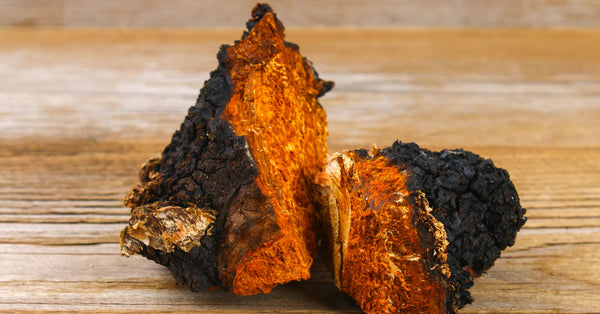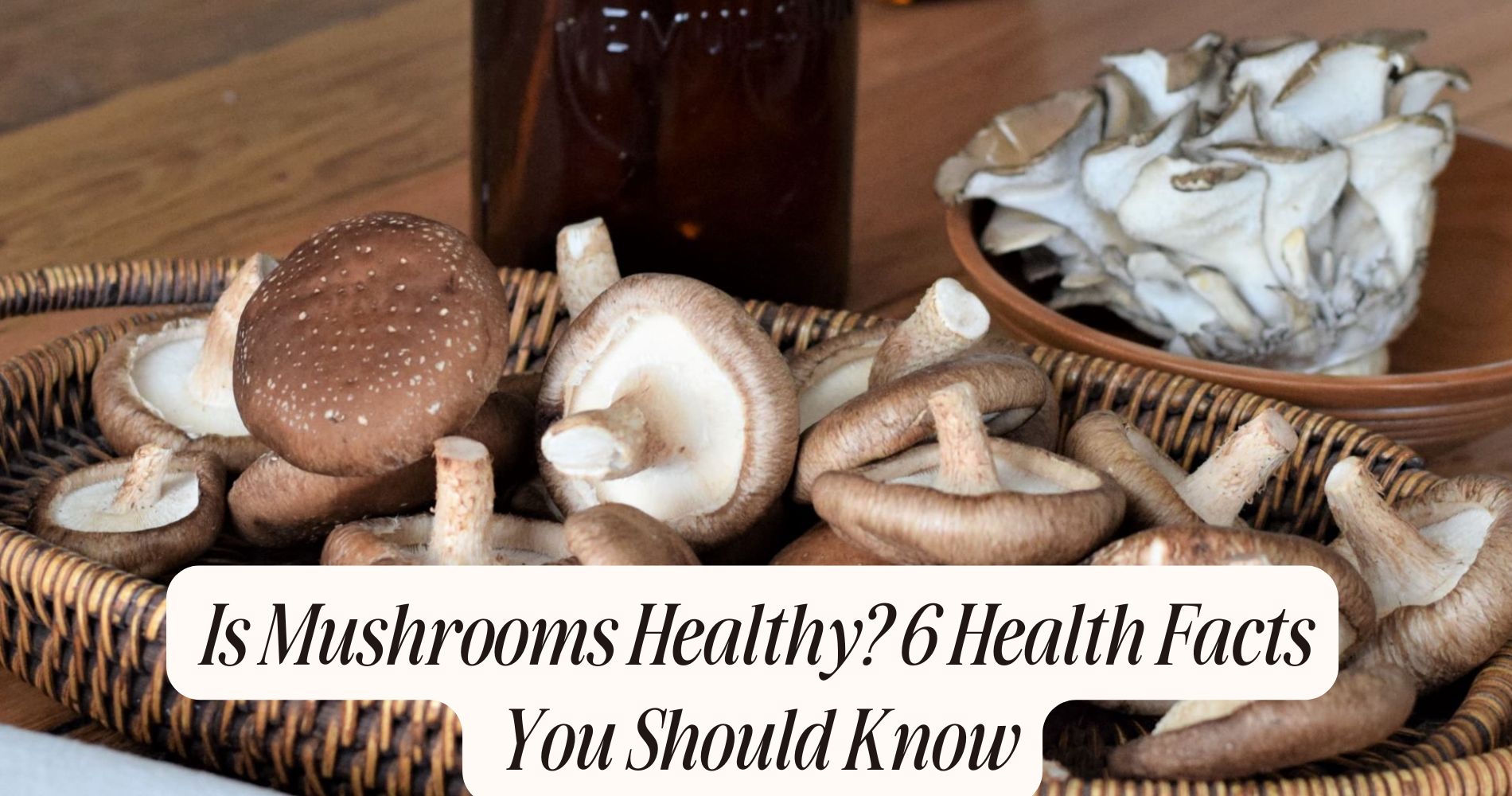
Chaga Mushroom and Cancer: What Research Shows
Chaga mushroom and cancer have become a growing focus of research due to the mushroom’s remarkable antioxidant profile and potential anti-cancer properties. Rich in bioactive compounds, Chaga may help reduce oxidative stress by neutralizing harmful free radicals—a key factor in cancer development. Studies suggest that Chaga extracts could trigger apoptosis (cell death) in cancer cells and support the body’s defense mechanisms. While promising, it’s essential to use Chaga responsibly and consult a healthcare provider before adding it to your regimen. The connection between chaga mushroom and cancer continues to evolve, offering intriguing possibilities for future wellness.
Understanding Chaga Mushroom: An Overview
Chaga mushroom, scientifically known as Inonotus obliquus, is a unique fungus that typically grows on birch trees in cold climates.
Its history dates back centuries, particularly in Russia, where it’s been revered for its medicinal properties. People have traditionally used chaga in teas and tinctures to support overall health, often believing it could help with various ailments.

This mushroom is recognized for its high antioxidant content, which has contributed to its popularity in folk medicine.
As you explore chaga's potential benefits, it’s essential to understand its traditional uses and historical context. By doing so, you gain insight into how this fungus has been integrated into wellness practices across cultures and how it may play a role in modern health discussions.
Nutritional Profile of Chaga Mushroom
Chaga mushroom is packed with antioxidants, vitamins, and minerals that can greatly benefit your health.
Its rich nutritional profile supports immune function and may enhance your body's ability to combat disease.
Understanding these components is essential when considering Chaga's potential role in cancer prevention and treatment.
Rich in Antioxidants
Mushrooms like Chaga are celebrated for their rich antioxidant content, which plays an essential role in promoting overall health.
These antioxidants act as powerful cellular protectors, guarding your body against oxidative stress and damage caused by free radicals. By incorporating Chaga into your diet, you tap into one of nature's potent antioxidant sources, helping to bolster your immune system and improve cellular function.
Research suggests that the unique compounds found in Chaga, such as polysaccharides and phenols, enhance its antioxidant properties, making it a valuable addition to your nutritional regimen.
Choosing Chaga may not only promote wellness but also support your body's natural defenses, highlighting the importance of antioxidants in maintaining long-term health.
Vitamins and Minerals
The nutritional profile of Chaga mushroom reveals a rich array of vitamins and minerals that contribute to its health benefits.
You'll find notable vitamin content, including B vitamins, which support energy metabolism and cognitive function. Additionally, Chaga contains vitamin D, essential for immune health and calcium absorption.
On the mineral side, Chaga is packed with beneficial elements like potassium, magnesium, and zinc.
These minerals play vital roles in various bodily functions, from maintaining proper hydration to promoting healthy immune responses. The mineral benefits of Chaga can enhance overall wellness, making it an excellent addition to your diet.

Antioxidants and Their Role in Cancer Prevention
Antioxidants are compounds that protect your cells from oxidative stress, which can lead to cancer development.
By neutralizing free radicals, these substances play an essential role in safeguarding healthy cells.
Chaga mushroom, rich in antioxidants, may offer additional benefits in cancer prevention through its unique biochemical properties.
Antioxidants Explained
In the domain of cancer prevention, antioxidants play an essential role in combating oxidative stress, a condition that can lead to cellular damage and disease progression.
These compounds neutralize free radicals generated through cellular oxidation, helping to maintain your body’s overall health. You can find various antioxidant sources in fruits, vegetables, nuts, and even certain mushrooms like chaga.
By incorporating these foods into your diet, you can bolster your body's defenses against oxidative stress. Research suggests that a diet rich in antioxidants may contribute to lower cancer risks by protecting cells from damage.
Understanding how antioxidants function and their importance can empower you to make informed dietary choices to support your long-term health.
Cancer Cell Protection
While you mightn't think about it daily, protecting your cells from damage is essential for cancer prevention. Antioxidants play an important role in this process by neutralizing free radicals that can harm your cells.
By incorporating cancer prevention strategies into your lifestyle, such as consuming antioxidant-rich foods, you can bolster your immune system support and enhance your body’s natural defenses.
Research shows that certain antioxidants, like those found in Chaga mushrooms, may specifically target and protect cancer cells, reducing their proliferation. This protective effect not only helps in preventing cancer but also strengthens your immune system, allowing it to respond more effectively to potential threats.
Prioritizing cell protection can be a valuable component of your cancer prevention efforts.
Chaga Mushroom Benefits
Understanding the benefits of Chaga mushrooms reveals their significant role in cancer prevention, primarily through their antioxidant properties. These compounds combat oxidative stress, which can damage cells and lead to cancer development.
You can experience chaga tea benefits by incorporating it into your daily routine; this beverage is rich in antioxidants, promoting overall health.
Various chaga extraction methods enhance these benefits, allowing you to access the mushroom's bioactive compounds more effectively. Whether you prefer tinctures or powdered forms, each method offers unique advantages.
Chaga Mushroom's Bioactive Compounds
Chaga mushroom is a powerhouse of bioactive compounds that contribute to its potential health benefits, particularly in cancer research.
Among these compounds, polysaccharides, triterpenes, and phenolic acids exhibit significant bioactive properties. For instance, polysaccharides like beta-glucans are known for their immune-modulating effects, enhancing your body's defense mechanisms.
Triterpenes possess anti-inflammatory and antioxidant properties, which may help in reducing oxidative stress associated with cancer development.
Furthermore, phenolic acids are recognized for their ability to scavenge free radicals, further showcasing Chaga's therapeutic potential.

Current Research on Chaga and Cancer
Recent studies have begun to uncover the therapeutic potential of Chaga mushroom in cancer treatment, building on the knowledge of its bioactive compounds. Researchers are exploring various chaga extraction methods to maximize the bioavailability of these compounds, which show promise in inhibiting tumor growth and enhancing immune response.
In vitro and animal studies suggest that specific extracts may induce apoptosis in cancer cells and reduce inflammation. Furthermore, some investigations focus on the therapeutic applications of Chaga alongside conventional treatments, evaluating its role in improving patient outcomes.
While promising, more clinical trials are necessary to validate these findings and determine ideal dosages. Overall, Chaga’s unique properties could offer a complementary approach in the fight against cancer.
Mechanisms of Action: How Chaga May Affect Cancer Cells
While many natural substances are being studied for their potential anti-cancer properties, Chaga mushroom’s unique compounds stand out for their specific mechanisms of action against cancer cells.
Research suggests that polysaccharides and betulinic acid in Chaga may induce apoptosis, or programmed cell death, in tumor cells. Additionally, Chaga’s antioxidant properties help reduce oxidative stress, which can contribute to cancer progression.
Effective chaga extraction methods, such as hot water or alcohol extraction, enhance the bioavailability of these beneficial compounds.
For those interested in incorporating Chaga into their wellness routine, chaga dosage recommendations typically range from 1 to 3 grams daily, depending on individual health factors.
Understanding these mechanisms can guide your exploration of Chaga as a potential complementary approach to cancer care.
Safety and Side Effects of Chaga Mushroom
Although many people turn to Chaga mushroom for its potential health benefits, it’s vital to take into account its safety and possible side effects.
While generally considered safe, Chaga supplements can cause allergic reactions or digestive issues in some individuals. Additionally, its blood-thinning properties may interact with medications like anticoagulants, increasing the risk of bleeding.
It’s important to adhere to dosage guidelines, as excessive consumption can lead to more severe complications, including liver damage. Always consult a healthcare professional before adding Chaga to your regimen, especially if you have existing health conditions or are pregnant.
Integrating Chaga Into a Cancer Prevention Strategy
Integrating Chaga mushroom into a cancer prevention strategy can enhance your overall health approach, especially when combined with other lifestyle changes.
Chaga supplements offer a range of benefits, such as boosting the immune system and reducing inflammation, which are essential in cancer prevention. To maximize these effects, it's important to follow chaga dosage recommendations; typically, this ranges from 1 to 3 grams per day for powdered forms or 1 to 2 teaspoons for teas.
Additionally, consider incorporating a balanced diet, regular exercise, and stress management techniques. By making these holistic adjustments alongside chaga, you can create a more effective cancer prevention strategy that not only focuses on the mushroom but also on overall well-being.

Future Directions in Chaga Research and Cancer Studies
As researchers explore deeper into the potential of chaga mushroom in cancer treatment and prevention, several promising directions are emerging.
Future research is likely to focus on identifying specific compounds within chaga that exhibit anti-cancer properties. You might see studies investigating the synergistic effects of chaga when combined with conventional therapies, as well as its role in enhancing immune responses.
Clinical trials will be essential in validating these findings, providing evidence of chaga's efficacy and safety in human subjects. Furthermore, exploring dosage and administration methods will help determine ideal usage.
Discover the Power of SUPER MUSHROOM GUMMIES
Curious about harnessing the benefits of mushrooms like Chaga in an easy, delicious form? Meet SUPER MUSHROOM GUMMIES by Well Gummies—your daily boost in a chewable treat. Each vegan gummy is packed with a blend of 10 functional mushrooms designed to energize your body, sharpen your focus, and strengthen your immune system naturally. With a fresh wild berry flavor that rivals your favorite candy, there's no need to worry about jitters or crashes—just calm, balanced energy to help you thrive. It's mushroom wellness made simple, tasty, and convenient.
Frequently Asked Questions
Can Chaga Mushroom Be Consumed in Any Form?
You can consume chaga in various forms, including teas, tinctures, and powders. Make sure you follow chaga preparation methods and consumption guidelines for maximum benefits, balancing dosage and considering potential interactions with other substances.
Are There Specific Cancer Types Chaga May Benefit More?
Chaga may offer benefits for specific cancers, particularly those related to immune response. Research suggests it could potentially support treatment for breast, prostate, and colorectal cancers, though more studies are needed to confirm these effects.
How Does Chaga Interact With Conventional Cancer Treatments?
Chaga interactions with conventional treatments may enhance their effectiveness, creating potential treatment synergy. It’s essential to consult healthcare professionals to evaluate how Chaga could complement your existing cancer therapies without causing adverse effects.
Is There an Optimal Dosage for Chaga Mushroom?
Determining an ideal dosage for chaga mushroom varies due to extraction methods and individual health factors. You should consult a healthcare professional to navigate dosage variations and guarantee safety and efficacy in your regimen.
Can Chaga Mushroom Be Used as a Sole Cancer Treatment?
You can't rely solely on chaga mushroom for cancer treatment. While chaga shows potential efficacy, it should complement established cancer therapies, not replace them. Always consult healthcare professionals for detailed treatment options tailored to your needs.
Conclusion
In conclusion, chaga mushroom shows promise in cancer research, primarily due to its rich antioxidant profile and bioactive compounds. While current studies indicate potential mechanisms that may hinder cancer cell growth, it’s essential to approach its use cautiously. Always consult healthcare professionals before integrating chaga into your cancer prevention strategy. As research evolves, chaga might play a more significant role in holistic health, but further investigation is vital to fully understand its efficacy and safety.




